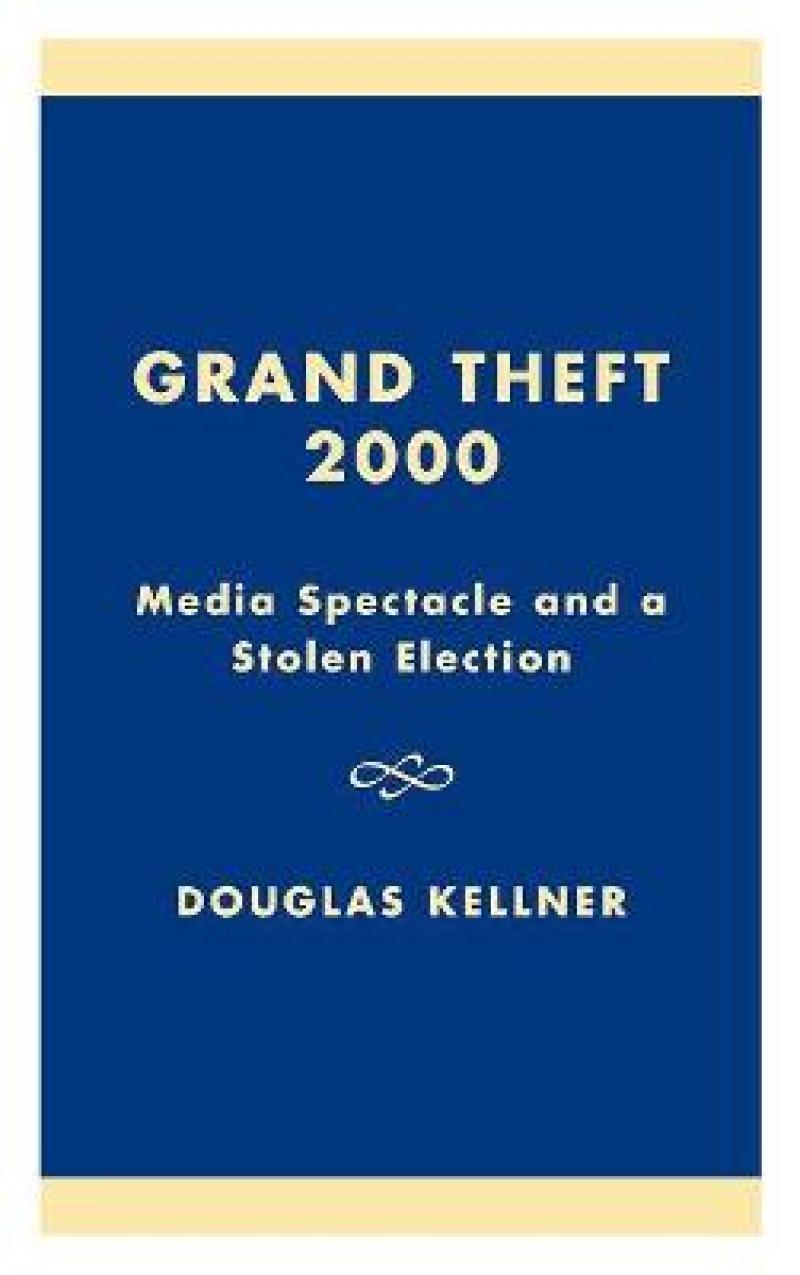Douglas Kellner's Grand Theft 2000 is a stunning expose of the failure of the news media to report on the biggest and most important story in decades: the theft of the 2000 presidential election. Kellner artfully dissects the big lie propaganda of the Republicans and their media pundits, and lays bare before us the ugly realities of the hardright Bush presidency. This book combines the skills and experience of a great scholar with the street smarts of a first rate journalist.
- Robert W. McChesney, author, Blowing the Roof Off the Twenty-First Century: Media, Politics, and the Struggle,
Douglas Kellner's scholarship is excellent and his analysis of the events of the 2000 election is clear and straightforward. Grand Theft 2000 exhibits a beautiful writing style, incisive argumentation, and a willingness to show that something was at stake in this election that reveals a series of crises of American democracy and points to solutions.
- Stephen Eric Bronner, Rutgers University,
Douglas Kellner recaps the entire spectacle, sifts its importance, and offers policy prescriptions for media and political institutions.
Journalism & Mass Communication Quarterly
Grand Theft 2000 is a well thought out commentary and analysis of the 2000 presidential election spectacle—smoothly written, tightly organized, and conceptually framed in a way that the reader can easily (and profitably) follow. Kellner weaves together diverse elements—the general and the specific, the abstract and the concrete, the realm of ideas and the realm of personalities, short-term effects, and (possible) long-term consequences for the future of American politics. Grand Theft 2000 is not only accessible to a large audience interested in the electoral drama but it also presents a strong, coherent argument grounded in deep, critical thinking.
- Carl Boggs, National University; author of The Two Revolutions: Gramsci and the Dilemmas of Western Marxism and Social Movements and Political Power,
